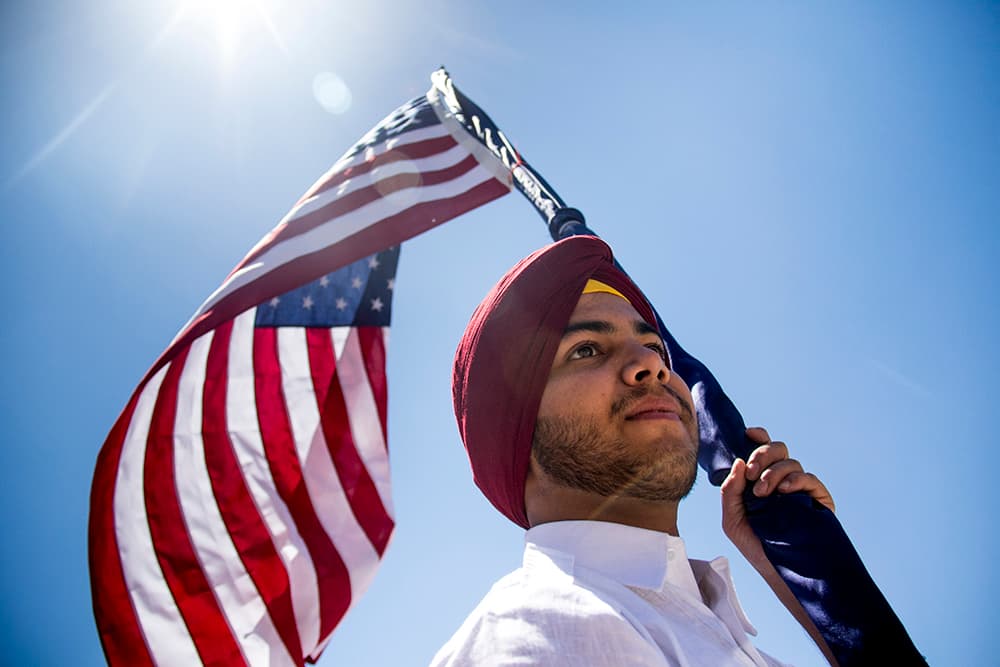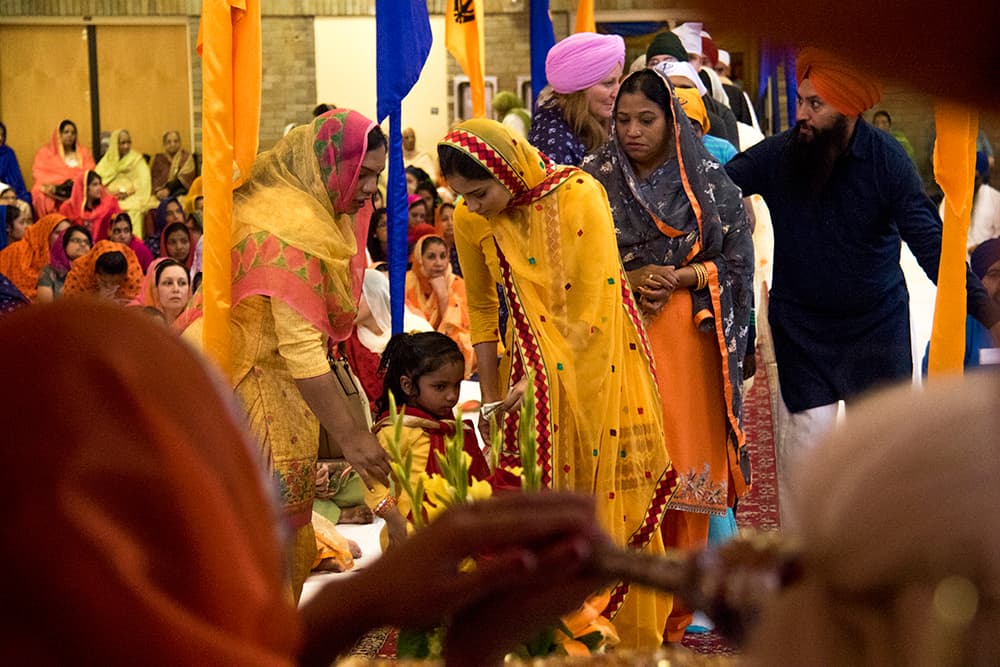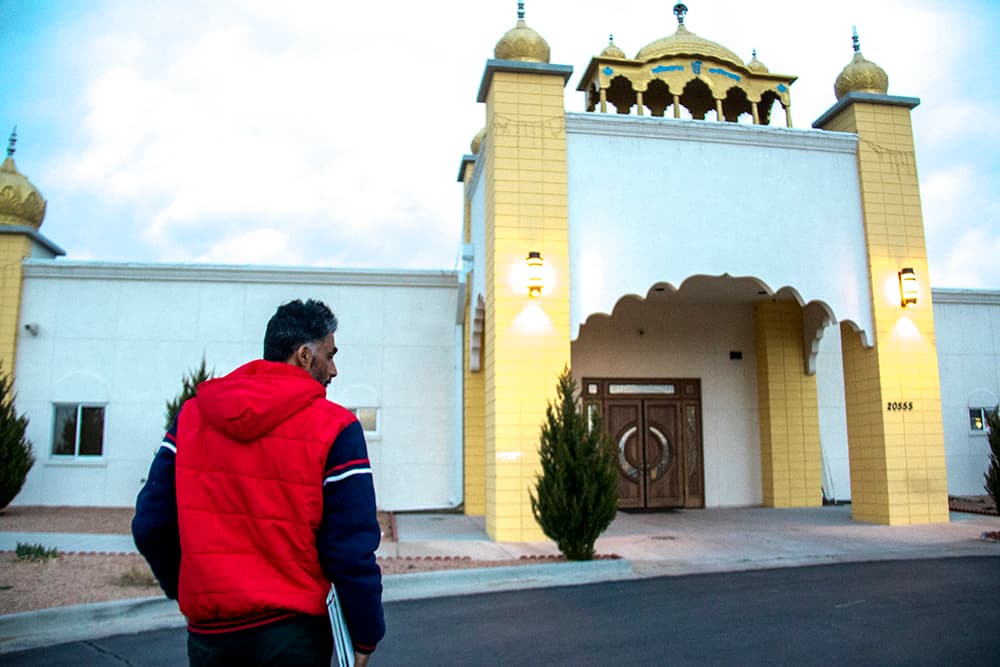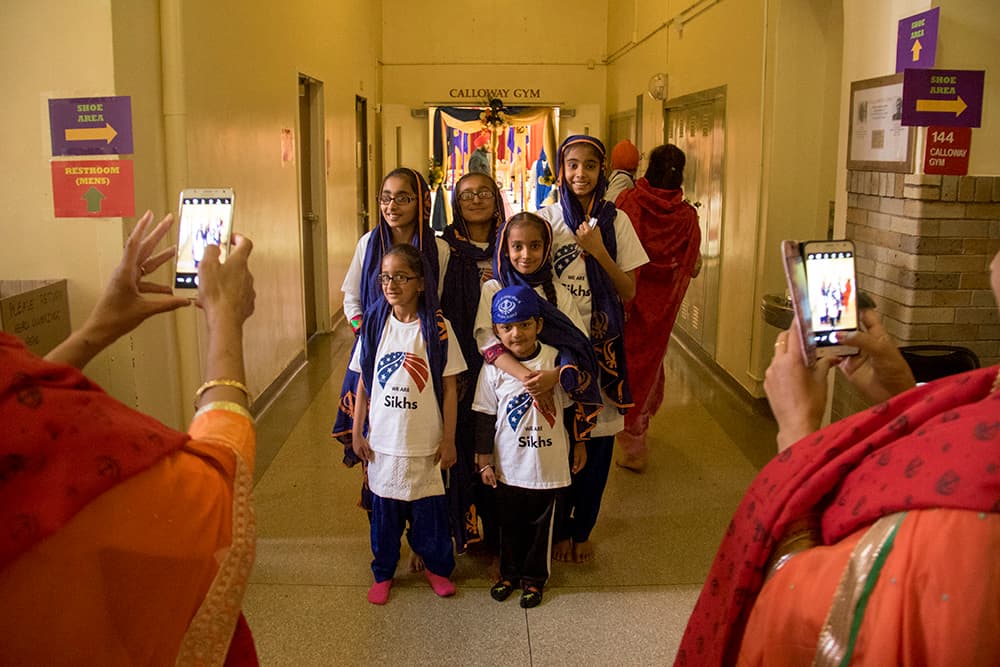
Observers of Sikhism in the Denver area have been campaigning for years for their religion to be recognized as a tradition distinct from any other. Their motivation came in the wake of 9/11, when Sikhs were among those targeted in an uptick of hate crimes. Fearing violence, community leaders in Denver have been pursuing education as a means of dispelling ignorance and fostering better relationships with the community at large.
Part of that effort was a lobby to add Sikhism to the Colorado Department of Education's social studies standards, a list of world faiths that could be taught in Colorado schools. Last week, as part of sweeping revisions to the state standards, the department approved that addition.
Paul Juneja, a community leader who made the case to the state school board, said he's excited they were able to make the change.
Kids were being ostracized at school, he said, and had endured names like "diaperhead."
"When you are profiled racially it hurts the inner core of your mind," he continued. "It was affecting the kids' development."

Members of Colorado Singh Sabha, Denver's Sikh community with a temple north of the city, have been pursuing outreach actions like parades through the city that act as a loud, colorful "nice to meet you." This push for education in schools is their next step to chase recognition.
"What we learn in the early stages at school remain with us for life," Juneja said. This applies to bullied kids' self-esteem, but also to the greater community if they're educated early about the Sikh culture. He hopes the standards addition will send ripples into the future.
Sikhism was added to state social studies standards alongside Buddhism, Christianity, Hinduism, Islam, Judaism and Taoism.

But the change in statewide emphasis is just the beginning, and the changes won't necessarily change what's taught in Colorado classrooms.
"The state does not determine the curriculum" for individual districts, said Jeremy Meyer, director of communications for the Colorado Department of Education. "It's an example that school districts could use" — more of a listed option than a mandate.
The changes were the first round in what will be regular reviews and revisions to education standards. In 2008, the state legislature passed Colorado’s Achievement Plan for Kids, which required these state education to go through a public review process every so often.
"This is the first review and revision cycle that has occurred since that law was passed," Meyer said. "It's been a big giant process which is coming to a culmination."
Tons of community and stakeholder recommendations have streamed in since the public comment period opened last year, with suggestions covering all areas of education from science and social studies to physical education and the arts.
Last week, a committee voted on changes for math and social studies standards. More changes will be voted on in the coming months.
"It's a great thing. We're all about getting community input," Meyer said. "The schools are the community."
Juneja and his supporters have gained a symbolic win now that they're listed along with other world religions. But they have some work ahead to ensure their vision for recognition actually makes it into classrooms. Juneja says he and supporters are gearing up to lobby individual school districts to make it into the local curricula.
They'll be drawing heavily from school programs in California, which he said teaches Sikhism at multiple grade levels.

"It hasn't been an easy ride," he said, but they're encouraged by the recent progress.









